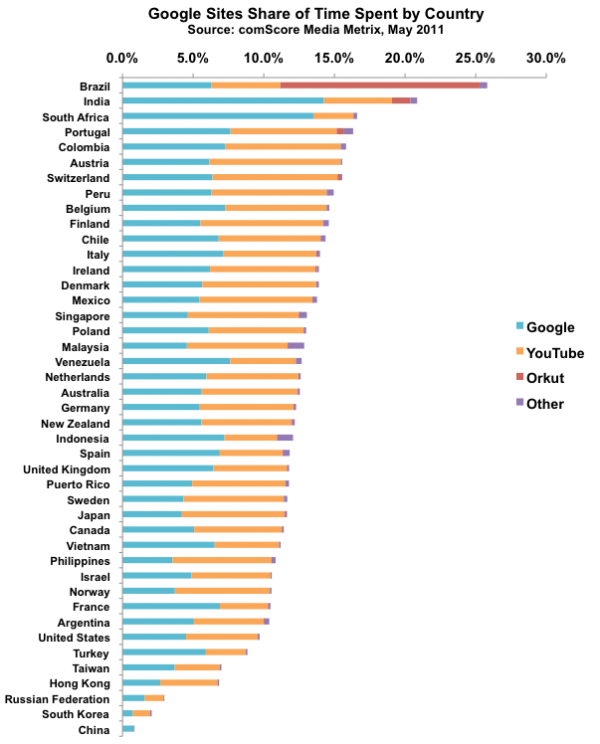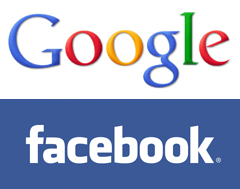Google — With Help From YouTube — Hits One Billion Visitors Before Facebook
We continue to hear about Facebook’s 700 million users, on the way to a billion worldwide. According to comScore Google is already there, at least looking across all its websites. Google: The Biggest Network Of Sites The chart below, provided to us from comScore, shows the number of unique visitors that went to each company’s […]
Google: The Biggest Network Of Sites
The chart below, provided to us from comScore, shows the number of unique visitors that went to each company’s network of web sites over the past year:
 comScore gets its data from a global panel of roughly two million internet users from which it extrapolates findings to the entire online population. This sampling methodology has been much criticized but remains the standard in the industry.
comScore gets its data from a global panel of roughly two million internet users from which it extrapolates findings to the entire online population. This sampling methodology has been much criticized but remains the standard in the industry.
The visitors that comScore counts aren’t the same as the active visitor numbers that Facebook self-reports (see Has Facebook’s Active User Growth Dropped 25% to 50%? for more on that), but the numbers do seem to be close to Facebook’s own statistics.
Facebook: Likely The Biggest Single Site
Of course, the Facebook “network” is pretty much Facebook itself. “Google Sites” will include everything from Google’s search engine to YouTube to Google Blogger. On a “what’s the most popular site” basis, Facebook is likely ahead of Google.
Indeed, when we dig a bit deeper we can see this isn’t all about Google search, Gmail and Maps. Much of the time spent on Google sites happens on YouTube. Indeed, if you look at it by country, you see what a huge contributor YouTube is and what a strategic purchase the video site turned out to be for Google.

Facebook: Most Minutes Spent
In terms of total minutes spent and share of minutes (engagement) Facebook is the global leader, followed by Microsoft, Google and Yahoo in that order. What’s interesting is that Yahoo has half the monthly minutes of Google, which appears at first blush to contradict the “95% content 5% search” time-spent argument often made for display advertising.

Opinions expressed in this article are those of the guest author and not necessarily Search Engine Land. Staff authors are listed here.



